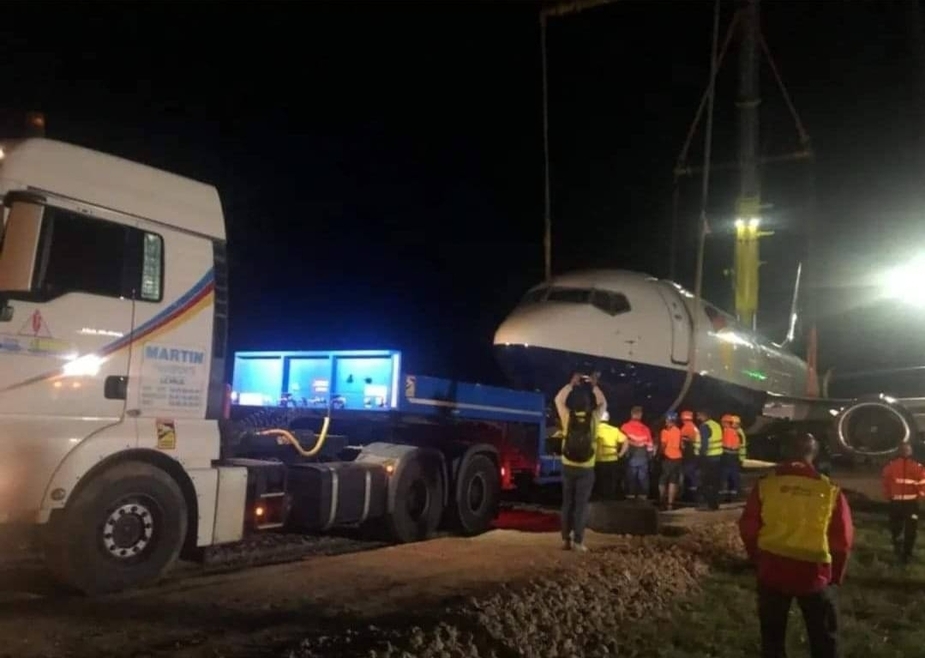The other thing this is cargo not passengers, I am not sure how much margins they have versus passengers flights?
I saw no differences in SOPs (flight crew ops manuals) between cargo/pax ops.
From a regulatory perspective (CAT, AOC) it is identical. Cargo only aircraft are allowed to carry more kinds of dangerous goods, but that doesn’t effect landing distance.
Maybe installing more EMAS systems might be a good idea. I assume that would have transformed this accident into a non event with only some EMAS modules to be replaced. But so far I only remember seeing one of those installed at LSZH.
I saw no differences in SOPs (flight crew ops manuals) between cargo/pax ops.From a regulatory perspective (CAT, AOC) it is identical. Cargo only aircraft are allowed to carry more kinds of dangerous goods, but that doesn’t effect landing distance
Thanks for the confirmation
PS: they manage to pull it last night


I don’t see any indications of the thrust reversers or spoilers. Would these be expected to be still deployed after running off the runway?
How do they overrun? Like everyone else. Too late touchdown, too high speed, malfunctioning brakes, spoilers, reversers, just some of the possible reasons.
Neil_F wrote:
I don’t see any indications of the thrust reversers or spoilers. Would these be expected to be still deployed after running off the runway?
Spoilers could retract if hydraulic pressure fails after shut down, reversers, depends how they shut the engines down.
Only the FDR is going to tell whether they were deployed at whatever stage.
These guys work very hard, always through the night, often hanging around airports in between while sorting/loading goes on. Then there’s tons of cost saving measures by the .xls crowd
- use idle reverse to save fuel (money)/ less noise*
- use autobrake low to save brakes (money)*
- vacate at high speed exit (at the end) to save tyres (money)*
- fly low drag approach to save fuel (money)*
- 60 emails a year about ‘uplift minimum block fuel (no „unnecessary“ extra fuel (money), P L E A S E ! ! !)’*
- 7 items „MEL’d“ on hold items list, affecting 19 different combinations / subchapters in the manual… one brake deactivated, one TR deactivated, performance penalty 2300kg, „take fuel but be aware we’ll have to leave payload behind, Captain“ – but it’s all legal*
- oops, the plane was 3 tons heavier, some containers were erroneously swapped shortly before departure*
* unless required/not possible for safety reasons
* Delay reason: commander requested reweighing of all cargo prior departure due to prior inconsistencies experienced at this station
There’s rules, and there’s getting the job done. Not saying this has anything to do with this particular excursion, but 737 brakes are crappy, these guys are always under time pressure flying old junky planes while unimaginably tired.
I wonder how many times over these savings are wiped out by just one damaged airframe?
alioth wrote:
I wonder how many times over these savings are wiped out by just one damaged airframe?
I asked myself the same but then realized that accidents were covered by insurance. So for the company probably nothing is lost, maybe slightly increased insurance premium next time.
Emir wrote:
maybe slightly increased insurance premium next time.
Which gets pass-through and charged to clients on next shipment…
Ibra wrote:
Which gets pass-through and charged to clients on next shipment…
Of course, like any cost is transferred to end customers. There’s no other way in any business 